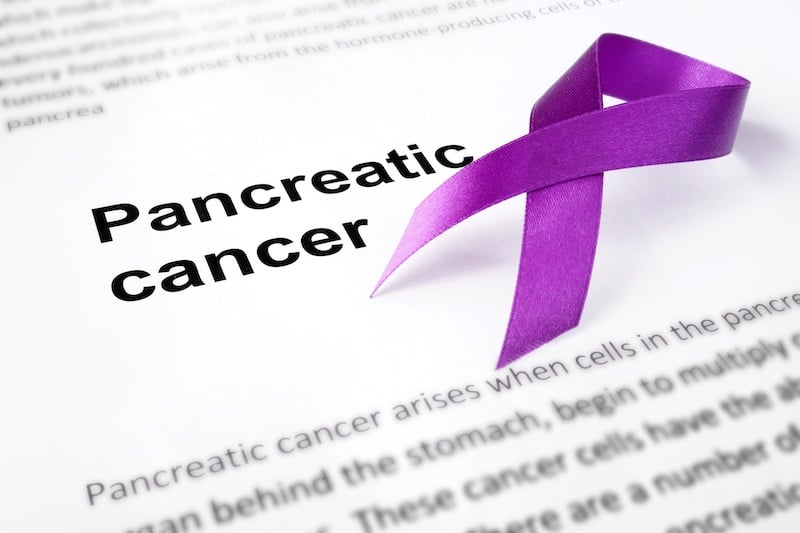Summary:
ClearNote Health and University Hospital Southampton have launched the SAFE-D study, the largest of its kind, to evaluate the Avantect Pancreatic Cancer Test’s ability to detect early-stage pancreatic cancer in people recently diagnosed with type 2 diabetes.
Takeaways:
- High-Risk Focus: Newly diagnosed type 2 diabetes patients face a significantly increased risk—up to eightfold—of pancreatic cancer, making them an ideal population for early detection efforts.
- Innovative Blood Test: The Avantect test analyzes epigenomic biomarkers like 5hmC in cell-free DNA to detect early pancreatic cancer noninvasively.
- Equitable Research Model: By utilizing community hospitals and local research hubs, the SAFE-D study aims to ensure diverse, accessible participation in groundbreaking cancer detection research.
ClearNote Health, a company focused on improving early detection for some of the deadliest cancers, today announced initiation of patient enrollment for a landmark clinical study utilizing its Avantect Pancreatic Cancer Test. Sponsored by University Hospital Southampton NHS Foundation Trust, the prospective, multicenter study seeks to improve early detection of pancreatic cancer in individuals recently diagnosed with type 2 diabetes. With up to 15,000 patient participants, it will be the largest study of its kind.
Patients with newly diagnosed type 2 diabetes are up to eight times as likely to develop pancreatic cancer as the general population.1 In some of these cases, the diabetes symptoms may be caused by cancer affecting the function of the pancreas, which is responsible for insulin production.
The new Surveillance of pAncreatic health aFter diabEtes Diagnosis (SAFE-D) study is led by Zaed Hamady, consultant pancreatic cancer surgeon at University Hospital Southampton. The single-blind, randomized controlled study will be conducted by researchers at the Southampton Clinical Trials Unit (CTU), based at the University of Southampton in the United Kingdom. The study will provide additional prospective validation data of the Avantect test and help identify early pancreatic cancer signals where present in this high-risk population.
“New onset diabetes has been linked to a six- to eight-fold increase in pancreatic cancer risk,” says Hamady. “This patient group provides a valuable opportunity to better understand the exact relationship between these diseases and further validate ClearNote Health’s blood-based Avantect Pancreatic Cancer Test, which has the potential to benefit thousands of people in the UK.”
Victoria Goss, PhD, head of Early Diagnosis and Translational Research at the Southampton Clinical Trials Unit, emphasized the study’s community-focused approach. “We recognize that access to healthcare and clinical trials is often uneven,” she says. “By conducting the SAFE-D study through local research hubs and community hospitals, we aim to make early cancer detection research more inclusive and equitable.”
“We are proud to sponsor this cutting-edge study, which holds tremendous potential to improve outcomes for patients facing this devastating disease,” says Mikayala King, PhD, Research and Development Governance, Quality Assurance and Sponsorship manager at University Hospital Southampton NHS Foundation Trust. “Our collaboration with ClearNote and the CTU builds on a strong foundation of excellence in cancer research.”
The Avantect Pancreatic Cancer Test is an innovative blood test designed for individuals at elevated risk of pancreatic cancer — particularly those over age 50 who are newly diagnosed with type 2 diabetes, individuals with a family history of the disease, or those with a genetic predisposition. The test analyzes the epigenomic biomarker 5-hydroxymethylcytosine (5hmC) in cell-free DNA, combined with other genomic data, to detect pancreatic cancer at its earliest and most treatable stages. Unlike conventional methods, ClearNote’s approach provides a deeper understanding of the underpinnings of cancer development to inform the next steps in a patient care pathway.
“Early detection is the key to saving lives from the deadliest cancers,” says Samuel Levy, PhD, chief scientific officer at ClearNote Health. “We intend to demonstrate that the Avantect test can identify pancreatic cancer in stages I and II, and we’re thrilled to be part of this transformative study that could redefine how pancreatic cancer is detected and managed for patients at high risk due to a recent diabetes diagnosis.”
Featured Image: Designer491 | Dreamstime.com
Reference
1. Chari ST, Leibson CL, Rabe KG, Ransom J, de Andrade M, Petersen GM. Probability of pancreatic cancer following diabetes: a population-based study. Gastroenterology. 2005 Aug;129(2):504-11. doi:10.1016/j.gastro.2005.05.007.





